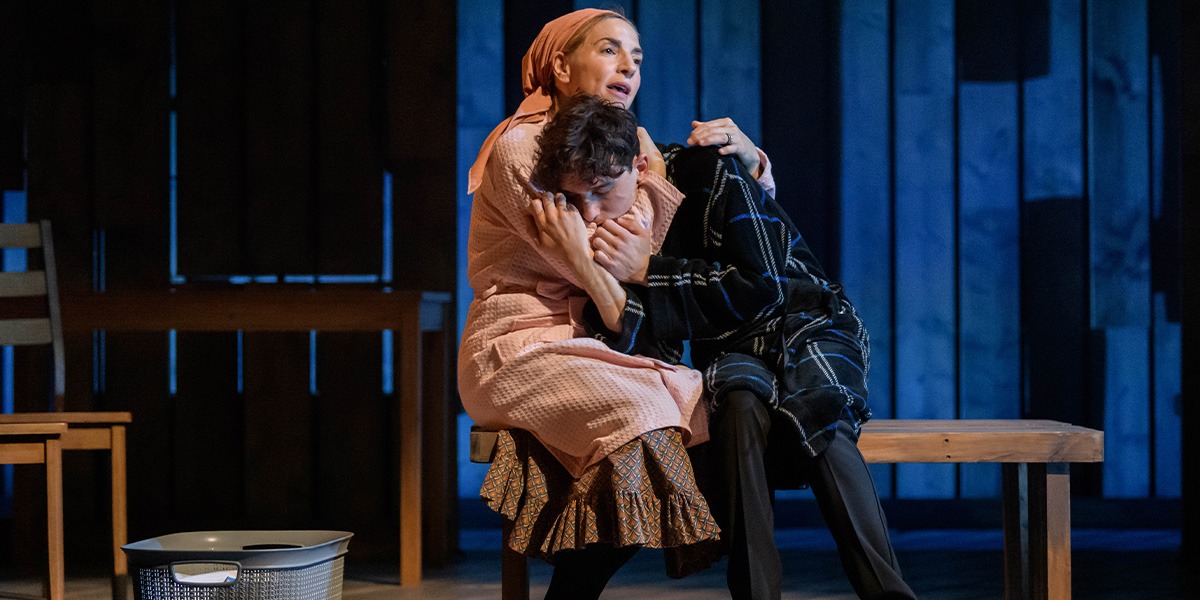‘Faygele’ is Yiddish for ‘little bird’, though it’s more often hurled as a slur against gay men. Shimmy Braun’s script, drawn from personal experience, carves out a bold narrative within the American Orthodox Jewish community – a world rarely seen on stage, and even more rarely with this kind of candour and specificity. Walk into Marylebone Theatre expecting a polite exploration of religion and sexuality, and Faygele hands you a live grenade wrapped in a prayer shawl.
As the lights dim, Ari Freed, an Orthodox teenager from Brooklyn – already dead – wanders barefoot into the auditorium, charming and mischievous, as mourners circle his coffin. Ghost stories don’t usually open with the ending, but Braun isn’t interested in suspense. He wants discomfort.
Ilan Galkoff plays Ari with the grin of a class clown who knows detention is eternal. He slips from 13-year-old bar mitzvah boy to posthumous narrator without costume changes – just the light fading from his eyes. His performance is raw to the point of discomfort: every flinch, every hesitation feels shared. In one particularly wrenching moment, Ari clutches the fringes of his tallit, his breath catching on the edge of tears, and the silence stretches so long it starts to hurt.
Clara Francis is magnetic as Mrs Freed, the show’s emotional centre of gravity. Her scenes with Ari hum with tenderness tinged by helplessness. She shows occasional flashes of steel, but she’s too depleted, caring for ten children, to challenge her husband’s authority. Andrew Paul brings a disquieting calm to Rabbi Lev: his guidance sounds compassionate, but always carries the undertone of someone resigned to the unchangeable. Yiftach Mizrahi’s Sammy injects buoyancy, offering Ari (and us) rare glimpses of hope.

The titular slur arrives early: Dr Freed spits ‘faygele’ at his son as his barmitzvah party. The word detonates, shredding Ari’s sense of self. Ben Caplan plays the patriarch not as a cartoon villain, but as a man tethered to doctrine and paralysed by fear: fear for his son, fear of the community, fear of his own inadequacy. Caplan’s silence speaks louder than his sermons. In another play, his performance would ground the piece; here, he’s the storm itself.
The production is technically modest. David Shields’s set – timber frame, some fabric panels, a bench – shifts easily between kitchen, study, and grave. Nic Farman’s lighting transforms warmth into morgue-blue in a blink. The cast build and break homes with every scene change.
Faygele isn’t flawless. Some monologues could be trimmed, a few scene transitions tightened, and the turkey fable will divide opinion. But its emotional truth eclipses every imperfection. You leave with one question echoing: how many Ari Freeds must vanish before tradition bends toward mercy?
It’s a 90-minute pressure cooker with no interval and nowhere to hide. For teens questioning identity, parents sensing their child slip away, or believers torn between dogma and compassion—this little bird sings a song that’s hard to forget.


